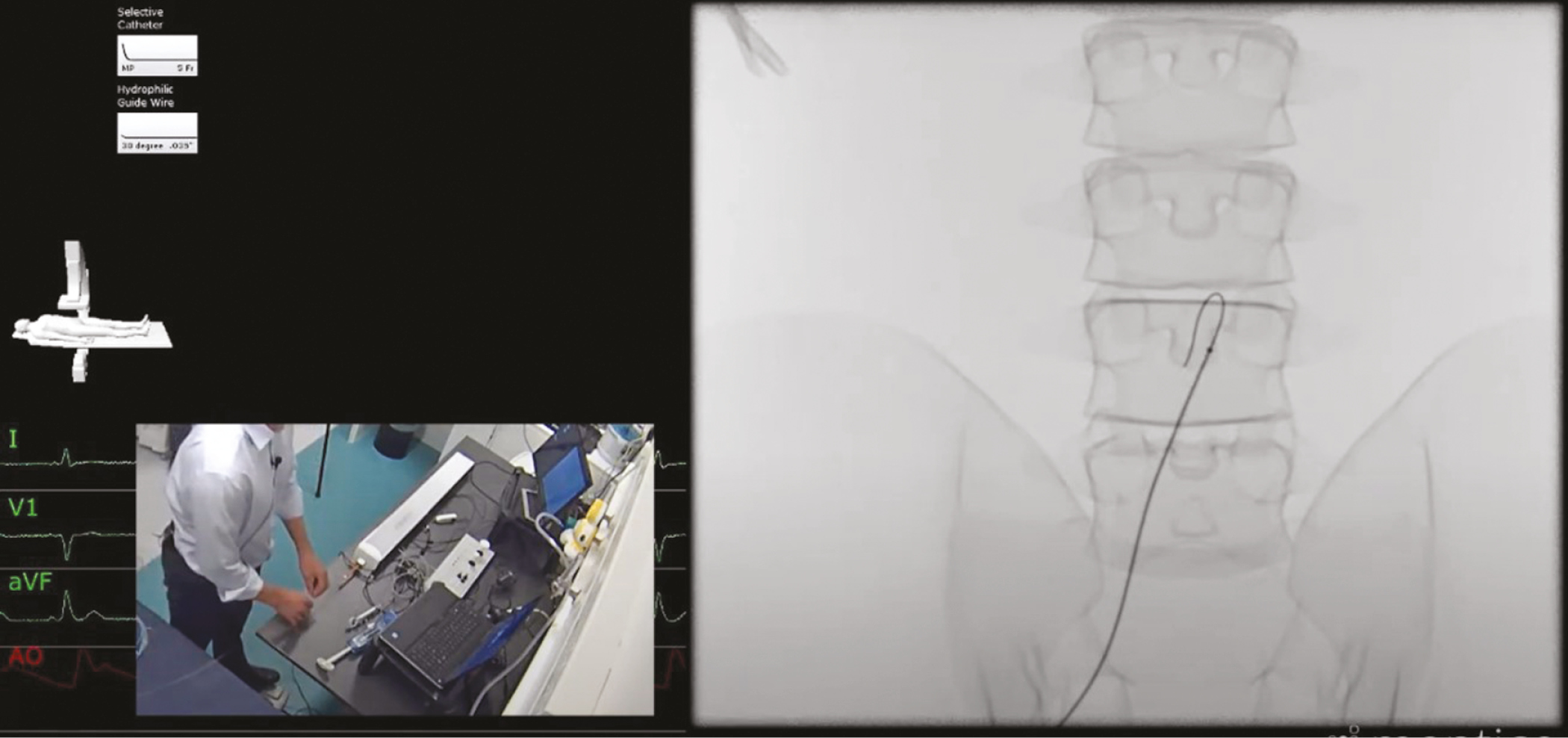
There is an increasing need to increase simulation-based learning opportunities for vascular surgery residents in endovascular skills training [1]. This study aims to explore the effectiveness of remote expert instructional feedback of endovascular simulation-based education (Figure 1-A99), as a means of increasing training opportunities in this area for vascular surgery trainees.


A mixed-methods study design was adopted [2]. Twelve vascular surgery residents from Ireland were tasked with completing two endovascular renal artery procedures, one with in-person expert feedback and the other with remote instruction. Participants ranged in experience levels from second year to final year of residency. Following the training activities, interviews and a questionnaire [3] were employed to gather information on the usefulness of remote feedback.
There was no significant difference reported by participants using a post event validated questionnaire between remote and in-person feedback. During the interviews, participants expressed mixed feelings about the presence of the educator while practicing, but they eventually saw no limiting factors to their practice when the trainer provided remote feedback. When receiving performance feedback remotely, clear communication and a shared knowledge of the task development are critical to success.
We believe these findings can inform the design and development of remote learning and assessment of endovascular skills training, and ultimately provide increased opportunities for more skills practice for vascular surgical trainees.
Authors confirm that all relevant ethical standards for research conduct and dissemination have been met. The submitting author confirms that relevant ethical approval was granted, if applicable.
1. Haiser A, Aydin A, Kunduzi B, et al. A systematic review of simulation-based training in vascular surgery. Journal of Surgical Research. 2022.
2. Boyle E, O’Keeffe DA, Naughton PA, et al. The importance of expert feedback during endovascular simulator training. Journal of Vascular Surgery. 2009.
3. Rudarakanchana N, Desender L, Van Herzeele I, et al. Virtual reality simulation for the optimization of endovascular procedures: current perspectives. Vascular Health and Risk Management. 2015.